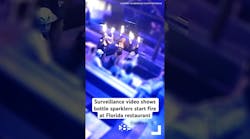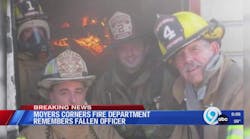Dec. 10--The 911 dispatcher listened intently as the agitated caller talked about revenge for the death of his friends killed in Iraq.
"All these people look like them," the caller said. "I've got to get even for my friends. I'm going to shoot them like they shot my friends."
The scenario, part of a training session last week, was a test for the dispatcher, who remained unfazed by the caller's threats and tried to get information to relay to lawmen. It's the type of emergency situation that Fayetteville and Cumberland County dispatchers are encountering more frequently, as soldiers return from war with post-traumatic stress disorder and other mental scars.
But the training for 34 dispatchers isn't just for handling soldiers' calls. The 911 operators have to know how to deal with people who are having a psychiatric crisis from depression, schizophrenia, bipolar illness or withdrawals from drugs or alcohol.
It's the job of the dispatcher to get as much information as possible so lawmen know what they're getting into, said Wayne Cannon, a licensed psychologist with Cumberland County Mental Health Center.
Cannon is the coordinator of the Crisis Intervention Team, which is part of a statewide effort to train emergency responders to handle calls involving a psychiatric crisis.
"We give officers and other first responders the skills they need to safety de-escalate situations which can be high-risk and volatile," Cannon said.
A total of 304 Fayetteville police officers, Cumberland County deputies and dispatchers have gone through the training since 2009, he said. The dispatchers receive 16 hours of training, while lawmen must go through a 40-hour course, Cannon said.
Plans are to expand the training to all first-responder agencies, including firefighters and emergency services, Cannon said.
This was the second training session for dispatchers, Cannon said. They are in vitally important crisis situations because they are the first contact for a disturbed person.
The dispatchers are trained to recognize signs and symptoms of mental illness and to identify callers who may be at higher risk of harming themselves or others, said Lt. Randy Podobinski, who coordinates the program for the Fayetteville Police Department.
The Crisis Intervention Team program doesn't just keep officers safe, Cannon said, but ensures that anyone needing help receives it. Lawmen are trained to decide whether a person would benefit more from treatment than going to jail, he said. The officers' recommendations are sent in a report to Cannon, who contacts the person needing help.
"I do a follow-up on every call for individuals to see if they're getting help," Cannon said.
Police are getting four to five calls per week from people who are in a psychiatric crisis, Cannon said, and the numbers likely will go up during the holidays.
A larger issue is the problems soldiers face after returning from deployments to Afghanistan.
"We're real concerned about the number of returning service members coming into contact with law enforcement, and we want to make sure their first contact is their last one," Cannon said. "I'm really concerned about handling those. We're doing everything we can to prepare, but with PTSD, it can be years before symptoms emerge."
The dispatchers were tested on the training through a series of mock emergencies. The trainees sat back to back with mental health workers who played the roles of people going through a psychiatric crisis.
One "caller" said she needed to contact her therapist because she was hearing voices telling her to kill the people who were coming to her house.
She told the dispatcher she had gotten a knife, and she became more agitated as the minutes passed.
But the dispatcher kept talking without a note of alarm in her voice.
She eventually persuaded the woman to put down the knife as police arrived.
Another dispatcher got a call from a man who was despondent over losing his job and his marriage. He said he had a gun and was going to shoot himself.
The dispatcher stayed calm and asked him about his situation, eventually succeeding in getting him to put the gun down.
In each case, the dispatcher was able to relay the information to the responding officers.
"(Dispatchers) have a better understanding on how to proceed or brief officers before they respond," Cannon said. "It really sets an officer up for success and makes it safer for everyone involved."
Staff writer Nancy McCleary can be reached at [email protected] or 486-3568.
Copyright 2012 - The Fayetteville Observer, N.C.





